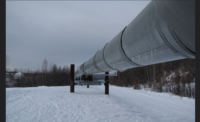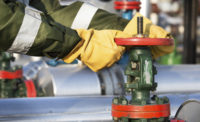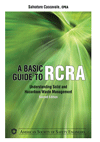Understanding the RCRA Exclusion for oil and gas E&P

When EPA introduced the Resource Conservation and Recovery Act (RCRA), the hazardous waste management standards included reduced requirements for some large-volume wastes. After studying the hazards of wastes in oil and gas exploration and production (E&P) operations, as directed by the US Congress, EPA determined regulation of these wastes under RCRA was not warranted. Therefore, many oil and gas E&P wastes are excluded from the RCRA Subtitle C hazardous waste management standards.
On its face, the exclusion seems simple; the total regulation text dealing with this exclusion amounts to about one sentence:
40 CFR 261.4(b):
“The following solid wastes are not hazardous wastes…
(5) Drilling fluids, produced waters, and other wastes associated with the exploration, development, or production of crude oil, natural gas or geothermal energy.”
But, like many topics in regulatory compliance, this exclusion is not as simple as it appears. In fact, EPA filled a number of Federal Register pages with a clarification of this exclusion on March 22, 1993 (FR Vol. 58, No. 53).
In short, the exclusion applies to two major kinds of waste:
- Gas and oil drilling muds and oil production brines; and
- Drilling fluids, produced water, and other waste intrinsically derived from primary exploration, development, or production field operations.
While many otherwise hazardous wastes are excluded from RCRA management standards, it is important to remember that not all wastes generated by oil and gas companies, or even all E&P wastes, are excluded.
Which Oil and Gas Wastes Are RCRA-Excluded? Which Are Not?
For crude oil and natural gas companies, the RCRA exclusion is limited to oil and gas field operations, meaning activities occurring at or near the well head or at the gas plant. The exclusion does not extend to refineries or the transport of oil and gas products—which is regulated under the US DOT’s Hazardous Materials Regulations (HMR).
While many oil and gas E&P wastes are excluded from the Federal hazardous waste management standards, states can regulate industry more stringently than the Federal government does and may not incorporate the Federal exclusion into their own State rules.
It’s also important to note that the RCRA exclusion for oil and gas does not extend to other Federal regulatory programs, like EPA’s Clean Air Act, Clean Water Act, EPCRA, TSCA, CERCLA, oil spill or release preparedness and contingency planning requirements, and others.
Lastly, EPA explicitly lists many specific wastes that are not excluded from regulation under RCRA. These non-excluded wastes include, among others:
- Refinery wastes;
- Unused fracturing fluids or acids;
- Used hydraulic fluids;
- Gas plant cooling tower cleaning wastes;
- Painting wastes;
- Waste solvents;
- Lab wastes;
- Boiler scrubber fluids, sludges, and ash;
- Incinerator ash;
- Pesticide wastes; and
- Service company wastes: empty drums, drum rinsate, sandblast media, spent solvents, spilled chemicals, and waste acids.
While the oil and gas exclusion does not apply to the wastes above, some may be excluded from some RCRA management standards under different regulatory reliefs.
Mixing RCRA and Non-RCRA Wastes
Mixing wastes together can raise issues as well. Depending on the characteristics or excluded status of the wastes you mix together, the resulting mixture may or may not be excluded from the RCRA waste management standards.
Why It’s Important
While the exclusion for the oil and gas industry may apply to your wastes, it’s crucial to understand that “exclusion” does not mean the waste is “unregulated.” In most cases, exclusions are sets of alternative management standards that must be met in order to qualify for relief from the more burdensome RCRA rules. To know if a certain waste is excluded or not, you must have a firm grasp of EPA’s hazardous waste management regulations.
By understanding the scope of the RCRA exclusion for the oil and gas industry, EHS managers and engineers can be confident they are managing waste in line with the latest Federal standards and avoid RCRA civil penalties as high as $37,500 per day, per violation.
Expert RCRA Training for Oil and Gas Professionals
US EPA requires personnel at sites that generate hazardous waste to complete training annually [40 CFR 262.34(a) and 265.16]. Fulfill this EPA requirement and get up to speed on the latest rules for managing hazardous waste at your site. With collaborative, nationwide public workshops; interactive and convenient online courses; and on-site group options, Lion Technology offers effective RCRA training for oil and gas professionals of any experience level or education background. RCRA Hazardous Waste Training.
US DOT Required Hazmat Shipper Training
All “hazmat employees”—those involved in preparing US DOT-regulated hazardous materials for transport by ground, air, or vessel—must complete training once every three years. [49 CFR 172.704(c)] Explore your options for training oil and gas personnel on the DOT rules for shipping hazmat, including Class 3 flammable liquids and waste shipped on a Manifest. Hazmat Shipper Training.
Source: Lion Technology, Inc.
Looking for a reprint of this article?
From high-res PDFs to custom plaques, order your copy today!







